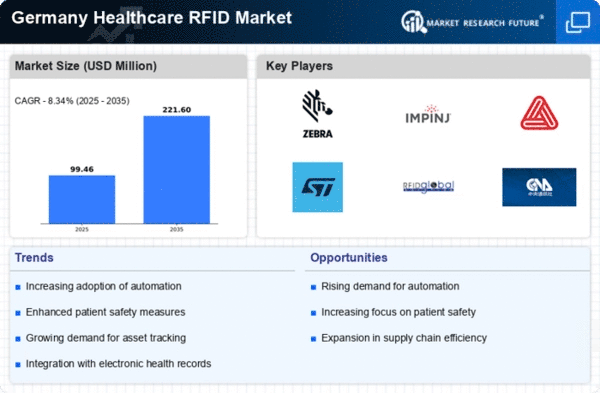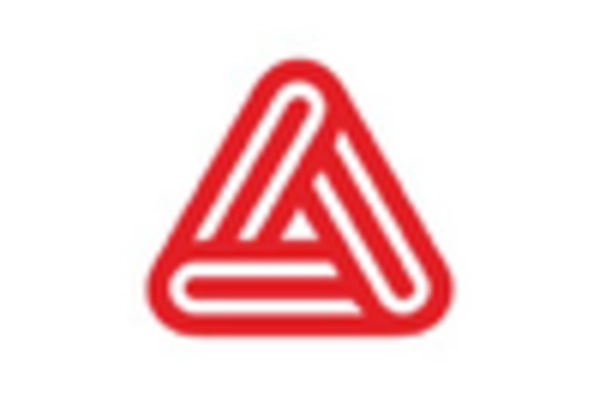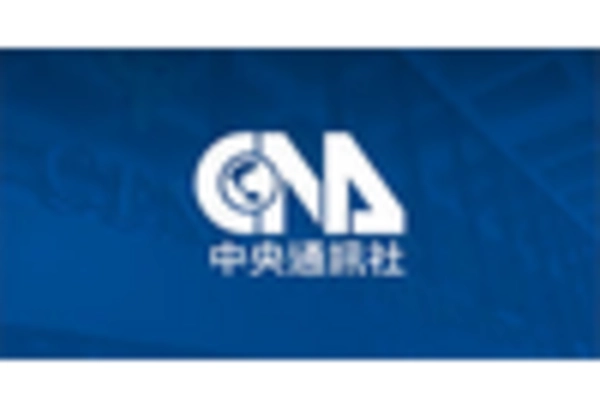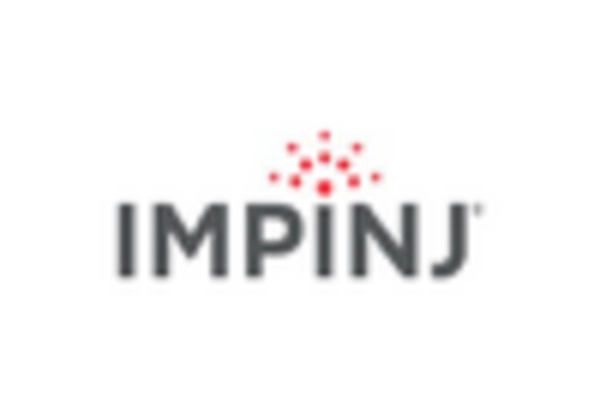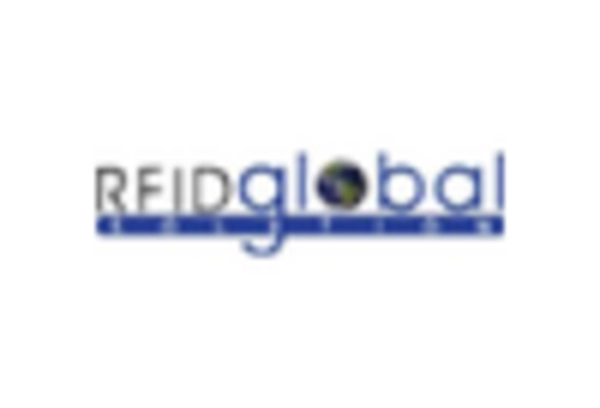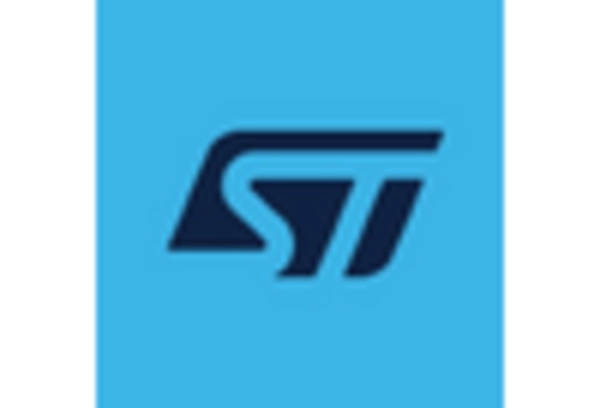Enhanced Patient Safety Measures
The Healthcare RFID market in Germany is experiencing a notable shift towards enhanced patient safety measures. Hospitals and healthcare facilities are increasingly adopting RFID technology to track medical equipment and medications, thereby reducing the risk of errors. This technology allows for real-time monitoring of assets, ensuring that critical items are available when needed. According to recent data, the implementation of RFID systems has led to a reduction in medication errors by approximately 30%. As patient safety remains a top priority for healthcare providers, the demand for RFID solutions is expected to grow, driving the healthcare rfid market forward.
Increased Focus on Asset Management
Asset management is becoming a focal point in the healthcare rfid market in Germany. With the rising costs of medical equipment and supplies, healthcare facilities are prioritizing efficient asset management strategies. RFID technology offers a robust solution for tracking and managing assets throughout their lifecycle. By implementing RFID systems, organizations can minimize losses and optimize the utilization of their resources. Data suggests that effective asset management through RFID can lead to a reduction in equipment loss by as much as 20%. This focus on asset management is likely to drive further investment in the healthcare rfid market.
Operational Efficiency Improvements
Operational efficiency is a crucial driver for the healthcare rfid market in Germany. By utilizing RFID technology, healthcare organizations can streamline their operations, leading to significant cost savings. For instance, RFID systems facilitate faster inventory management and asset tracking, which can reduce the time spent on manual processes. Reports indicate that hospitals implementing RFID solutions have seen a reduction in inventory costs by up to 25%. This improvement in operational efficiency not only enhances service delivery but also contributes to better resource allocation, thereby propelling the growth of the healthcare rfid market.
Regulatory Compliance and Standards
Regulatory compliance is increasingly influencing the healthcare rfid market in Germany. The healthcare sector is subject to stringent regulations regarding patient safety and data management. RFID technology assists organizations in meeting these compliance requirements by providing accurate tracking and documentation of medical supplies and equipment. As regulatory bodies emphasize the importance of traceability, the demand for RFID solutions is likely to rise. Furthermore, adherence to these standards can enhance the reputation of healthcare providers, making RFID adoption a strategic priority in the healthcare rfid market.
Growing Demand for Real-Time Data Access
The demand for real-time data access is a significant driver in the healthcare rfid market in Germany. Healthcare providers are increasingly recognizing the value of having immediate access to information regarding patient status, equipment availability, and inventory levels. RFID technology enables this by providing instant updates and alerts, which can improve decision-making processes. As healthcare systems evolve towards more data-driven approaches, the integration of RFID solutions is expected to expand. This trend indicates a promising future for the healthcare rfid market, as organizations seek to enhance their operational capabilities.


